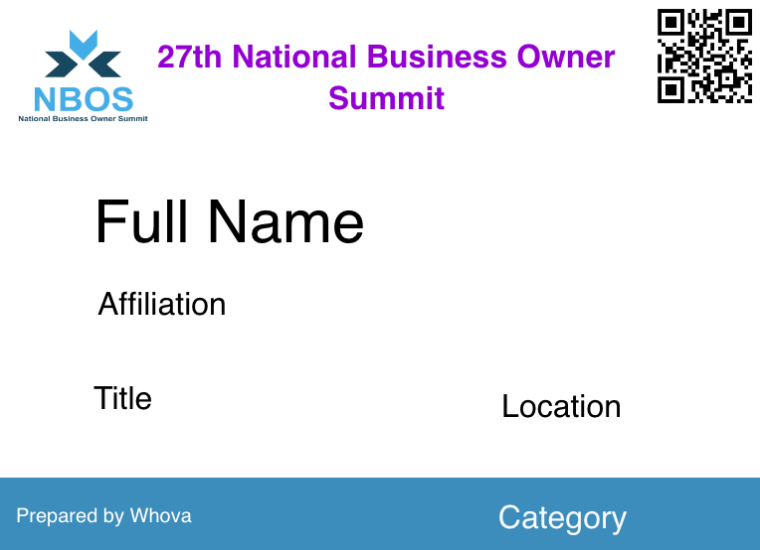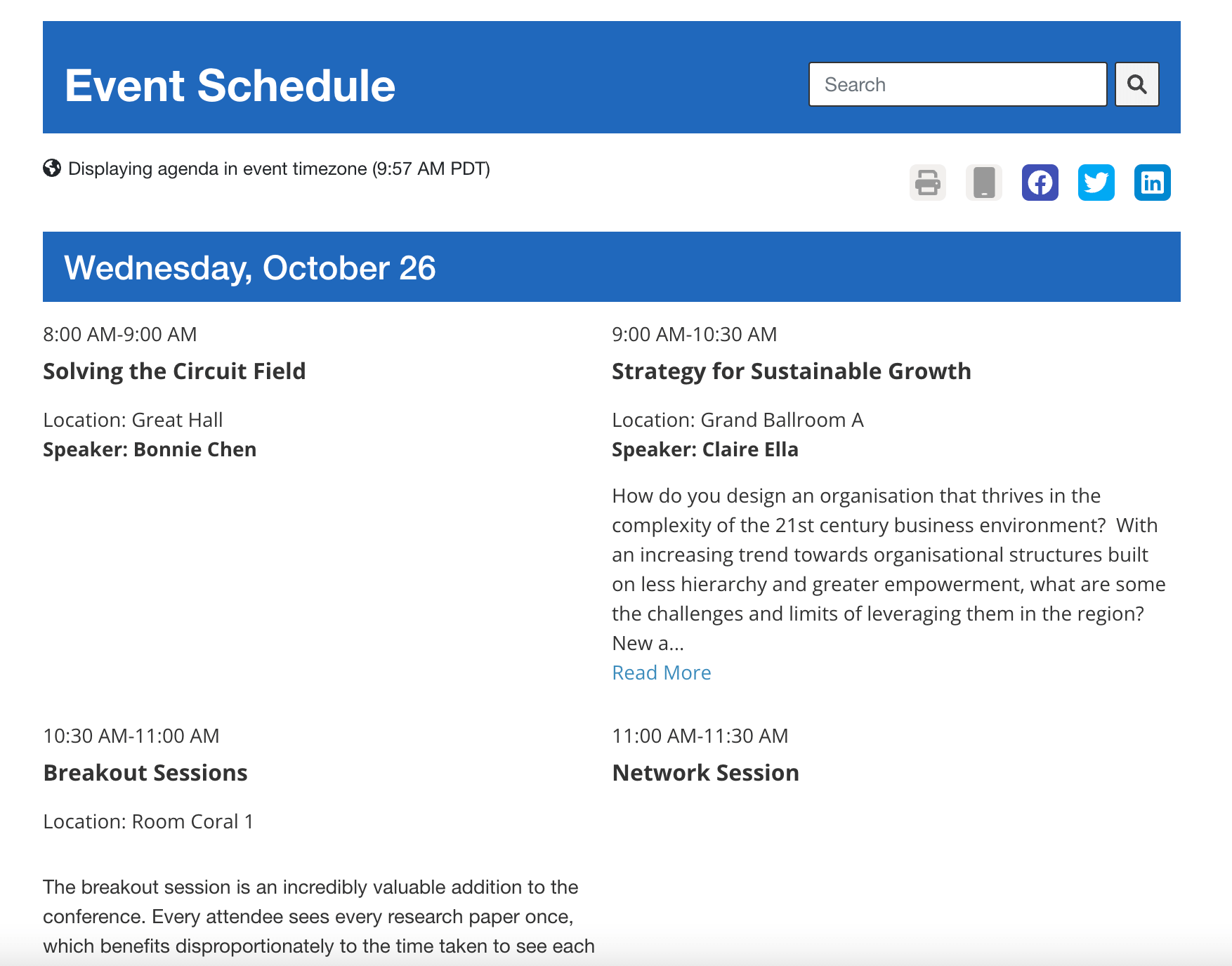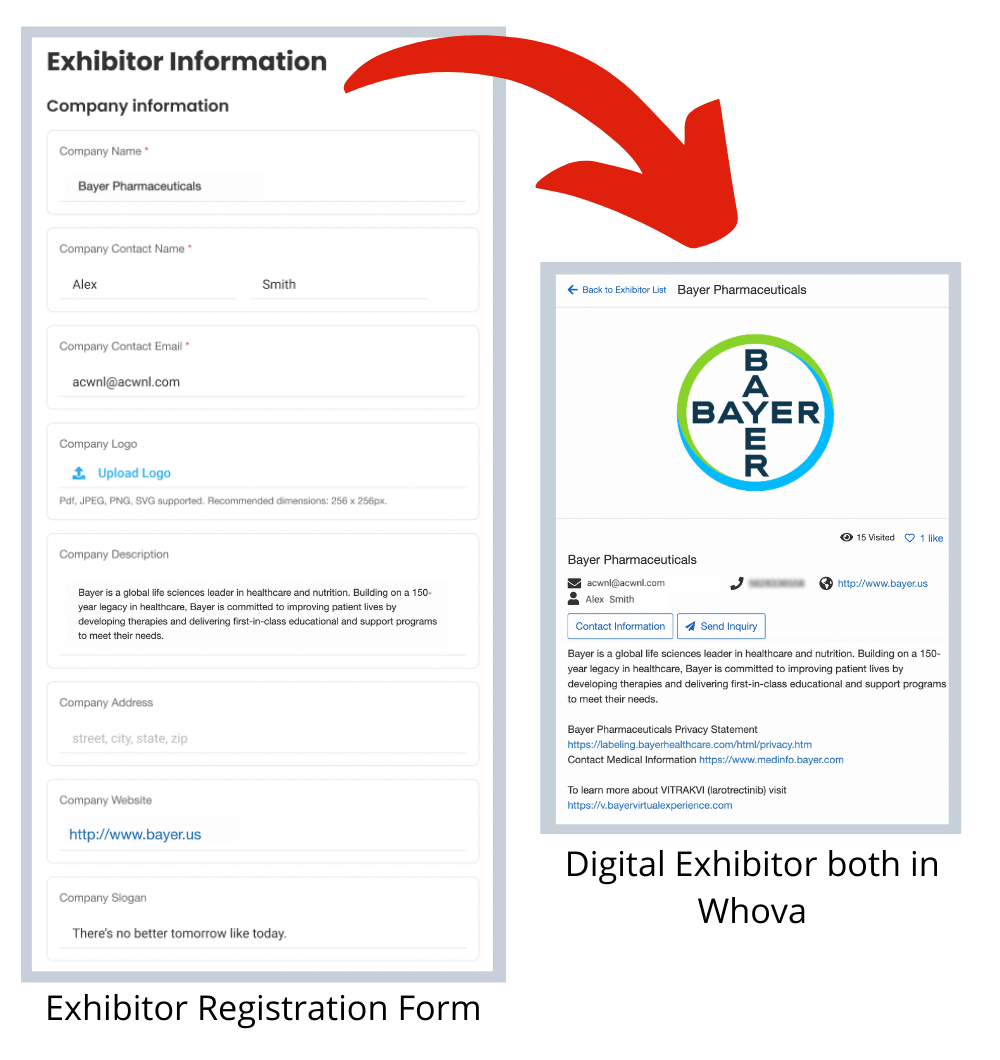You’re not alone if you’ve been struggling to adapt with limited staffing. According to an EventMb survey about the current state of the event industry, one third of event managers reported facing challenges from staffing shortages!
Whova hosted an “Event Insider” panel discussion with Lauren Manson, the executive director of Ohio Health Information Management Association & Sunny Briscoe, the deputy director at Mental Health & Addiction Association of Oregon, to discuss their experiences successfully managing events with limited staffing.
We gathered some of their best and brightest tips, and compiled them here in a handy guide for navigating the tricky waters of events with minimal staff! Don’t worry, with some careful planning and creative thinking, you can have an amazing event experience even with a smaller team.
1. Free up resources by cutting back in other areas of your organization
Cutting back on other areas of your organization, like smaller events or educational workshops, will help to free up time and resources you can now dedicate towards your big event. Rescheduling those educational workshops as specialty sessions during your main event for could be a more effective use of your time and resources.
You can also cut back on nonessential items during your event if you have limited staff and resources. Things like award ceremonies and pre-conference workshops are nice, but when it comes down to it, your event can still be successful without them. Use the time you would have spent coordinating those, to dedicate towards the “must haves” in your conference.
2. Save valuable time by delegating tasks to speakers and other participants
Letting go of tasks can be hard, especially if you want to ensure everything goes exactly to plan. But task delegation is key to freeing up some of your time, because after all, doing everything yourself isn’t usually realistic. Lauren and Sunny easily set up their speakers, exhibitors, and sponsors on Whova, so they could upload and manage their own information. All they had to do was send one simple email, and their participants could fill in biographies, session, and booth details. Similarly, exhibitors can conveniently upload their information while registering for your event!
3. Let Whova automate many event processes for you!
Many processes you need to complete for your event, that usually take a lot of time and effort, can be automated through Whova to free up your time for other important tasks.
To be able to upload names and other info and have those [Whova] badges populate on their own was amazing, it’s like magic!

Whova’s attendee name badges are fully customizable with unique QR codes
Whova also automatically adds QR codes unique to each attendee name badge, which Lauren mentioned in our fireside chat to be very helpful, as she used to spend a lot of time manually adding these.
Choose a webpage template to suit your needs and easily embedded it onto your event website
Another time-saving feature organizers rave about is Whova’s automatically generated event webpages. You can easily embed the fully customizable speaker, agenda, sponsor, and exhibitor pages onto your event website using a single line of code. Or, simply create your own website from the many templates in Whova’s platform, including as many of the webpages as you wish. All changes made in the platform will update on the webpages with no further action needed!We used to have to manually go to 16 different places to update one single thing… now it just all happens automatically [with Whova’s webpages].

Exhibitors can input information as they register and it will conveniently upload into digital booths on the Whova platform
With Whova, you can also plan and manage tasks between your staff from one central location, and communicate through the app’s email or announcements feature.[Whova] was really user friendly. Getting some of those tasks met in a really quick way, [while also] not having to try and navigate other systems or software [because] everything was in one place. It was just a matter of assigning tasks to each person.
4. Complete tasks prior to the event
Set yourself up for success by completing the tasks that can be handled ahead of time. For example, you can pre-write all your email blasts, and during the event all you have to do is click send.
You can easily set up email campaigns right in Whova, and even schedule the times you want them to send, so that you don’t have to worry about anything during the actual event!
You can also write your Twitter posts ahead of time, and plan when to send them during the events for the best marketing. With Whova, you can even encourage attendees to post photos directly from the app to their socials, with photo frames customized with your event branding! Create these photo frames in Whova ahead of the event, and then your attendees will do the rest for you, creating awareness of your conference without lifting a finger.

Attendees can add fun photo frames to their photos, helping to market for your event
5. Documenting might seem tedious, but it’s key to efficiency
One of the biggest ways to keep your event afloat with a small team is by documenting every little task and small detail. Even add the times you need to send out emails, or start setting up check in tables. This kind of diligent event project management might end up saving you on the day of the event, and ensure you don’t forget small details that can have a huge impact.
Once everything is on paper, you can spend your time being proactive rather than reactive. You know exactly what needs to get done and when, and you can mark things off as you go, or divvy up the tasks among your team. By also carefully documenting procedures, if a staff member leaves suddenly, you know exactly what they were working on, and can easily transfer their materials and tasks lists to someone new.
Creating a monthly calendar is another great way to ensure you are prepared, and can predict roadblocks ahead of time. On the day of the event you can enjoy your careful planning and be better prepared for when you do face obstacles.
6. Involve venues in the ongoing discussion
Post pandemic, one of the biggest mistakes you can make is assuming venues are fully staffed and running perfectly. To combat this, communicate with venue staff and keep them in the loop about any updates or changes happening in your event.
By having regular meetings with venue coordinators, you can ask specific questions about how they can meet your needs. Do they have the staff to support an event your size? Are they caught up on their technology if you are hosting a hybrid event?
Let the venue coordinators ask questions too, so they can best meet your expectations and ensure there will be no surprises the day of the event. If your venue is missing some items on your list, you can find easy ways to remedy this, especially if you are communicating with them way ahead of time!
7. Devise a handy checklist for your venue coordinators
Like we talked about before, if your venue is also experiencing staff shortages, you might need to be extra careful in keeping track of event preparation. To make sure everything that needs to get done actually gets completed, keep track of event logistics on a handy checklist.
You can even share these checklists with your venue coordinators, and ask them to check off the items they have already finished. Set up meetings to discuss items on the list, and ask your venue how long it will take to complete certain tasks. u
8. Utilize volunteers for easy tasks that can be explained in emails
Volunteers can be life-saving, but you sometimes need to be careful when assigning them tasks. You don’t want to give them something that if completed wrong, could potentially do some serious damage. It’s best to save the more complex tasks for staff members, and give volunteers tasks simple enough to be explained in an email. With your carefully documented procedures, you won’t even have to spend much time compiling information for these emails.
A creative way to save time is by putting volunteer assignments on the back of their name badges. They will know exactly where they’re supposed to be and when, right from their badges!
Volunteers are important for more than just helping with tasks, they might notice things during the event that completely slipped your mind. That’s why volunteer evaluations and debriefs are huge. Their feedback can help you improve your event the following year and be prepared with any contingency plans!
Do you want to learn more about Whova’s many other features that can help you successfully host an in-person, remote, or hybrid event? Then sign up today for a free demo!
